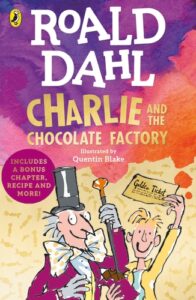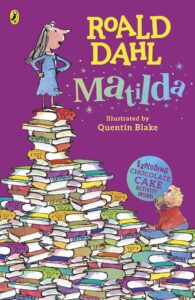
To say the decision by Puffin Books to edit Roald Dahl’s books is perplexing to say the least. The intention is to make the language more inclusive, and to remove or replace more problematic words. As an intention this is actually meant well, but in practice it makes little sense. Some changes are baffling. Making the Oompa-Loompas gender neutral is one, because it’s completely unnecessary (how was their previous description problematic?).
Now, let’s be clear: Language matters and inclusive language matters a great deal. When I was writing up the Irish Examiner style guide, which dictates what terms and linguistic styles we use, I made a point that we should not refer to people who have a condition in such a way that that condition defines them. So, somebody with diabetes as opposed to diabetic. As a father whose son was diagnosed with autism in the years after writing up that document, I am more acutely aware of the need for such language when you do not have the issue referred to yourself.
But I digress slightly.
I don’t agree with the claims from some critics that the Dahl edits are “woke” or for “snowflakes”. The changes, some of which are highlighted here, are meant well. I see the point of the publisher and recognise that it worked with a group that focuses on inclusivity. But my first reaction to the Roald Dahl news was that it was absurd. These are books, not instruction manuals. Indeed, the French publisher is not going to follow suit. Works of fiction are, by their very nature, works of art and just as importantly works of their time. You don’t have to agree with what’s in them, and you certainly don’t have to agree with how the author expresses themself. Words carry an abundance of meaning and nuance and it is impossible to avoid something objectionable to someone being written somewhere by any author.
My second reaction was more a question. Where does it end? One only has to look at the campaigns by conservatives in parts of the United States to restrict – sorry, vet – what’s available in school libraries, and in particular the targeting of texts with some LGBT content, to say that censorship on a wide scale has the potential for a very bleak future indeed. We as a species are already grappling with the seemingly endless tide of conspiracy theory and misinformation (as opposed to mistaken interpretation, which is different even though it can also be damaging). Do we really need to hide ideas instead of engage with them?
And logically, where would it end? How far back do you go in terms of sanitising? All of medieval literature would be in the bin, if that’s the case. I did a PhD on it, trust me. Most works considered “classics” would face redaction, some more extensively than others. The Bible endorses genocide and murder in some parts. Heart of Darkness is explicitly racist. Nietzsche is a misogynist. There is a short Marvel series where Captain America – Captain America! Supposedly all that’s good! – expresses disquiet about working with the X Men because “they’re not like us” (and X Men as a whole is a way of challenging racism and all its forms). Perhaps we should pay more attention to how adaptations take the essence of a story without the racism (eg, Apocalypse Now, the Chris Evans version of Captain America).
Decades ago, the Cork Examiner would have referred to women with jobs somewhat patronisingly as “girls” (eg, shop girls). I don’t propose to go back into the archives and change those. It makes me feel a bit too much like Winston Smith from 1984: Disney has taken to adding notes to some of its films, such as the original Jungle Book, to say they reflected older views which were wrong (and certainly the song at the end, where the girl dreams of a future “cooking in the home”, is extremely dated and I have repeatedly said this to my children, who love the rest of the film). I think this is reasonable enough, because it leaves the actual film intact as it was. And it’s a chance to explain to children what is or isn’t appropriate to say.
Disney has taken to adding notes to some of its films, such as the original Jungle Book, to say they reflected older views which were wrong (and certainly the song at the end, where the girl dreams of a future “cooking in the home”, is extremely dated and I have repeatedly said this to my children, who love the rest of the film). I think this is reasonable enough, because it leaves the actual film intact as it was. And it’s a chance to explain to children what is or isn’t appropriate to say.
Some of Dahl’s phraseology is dated, and has been for years. He made antisemitic comments in real life. His work can be cruel toward overweight people – think Augustus Gloop in Charlie and the Chocolate Factory, where his weight is equated to his character as a human being. But then David Walliams is equally antagonistic when it comes to people’s differences, and I haven’t seen any campaigns to edit back his work, though the Telegraph claims it could happen. Elsewhere Dahl’s narrator betrays a certain patriarchal approach to the place of women and girls, like in Esio Trot, though some of it is kind of excused by the way he frames the narrator’s voice.
That voice in Matilda for example is very clearly somebody addressing the reader directly (including the interjection, during an extended riff on how it would be delightful to write caustic reviews of awful students, “but enough of that, we have to get on”). That somebody is not necessarily Roald Dahl, though on balance of probability it is. However, if you’re reading the book aloud to a child then that, in effect, makes you the narrator. It’s supposed to. They’re written as you would tell a story to a child, not just as a child would read them. And the way he plays with language and creates words in the BFG is masterful.
 I have read a good number of the books to my sons, and we have listened to them in audiobook as well. I read some of them as a child in the early 1990s (or thereabouts) and at this remove can’t recall word for word any of them, let alone say a particular phrase influenced my thinking. What I can certainly say though, and it was only apparent while reading Matilda to my son, that Matilda instilled in my a lifelong hatred of bullying (and fascism) and an appreciation for kindred spirit bookworms (as I was at Matilda’s age and well beyond), as well as a warm affinity for teachers.
I have read a good number of the books to my sons, and we have listened to them in audiobook as well. I read some of them as a child in the early 1990s (or thereabouts) and at this remove can’t recall word for word any of them, let alone say a particular phrase influenced my thinking. What I can certainly say though, and it was only apparent while reading Matilda to my son, that Matilda instilled in my a lifelong hatred of bullying (and fascism) and an appreciation for kindred spirit bookworms (as I was at Matilda’s age and well beyond), as well as a warm affinity for teachers.
My approach, any time I came across something that I felt was wrong, was to simply tell the boys “you shouldn’t say stuff like this” or words of that ilk. They are not cruel and they understand this. But they do love the stories. And going back in to change the language changes those stories to some extent, and that is wrong.
